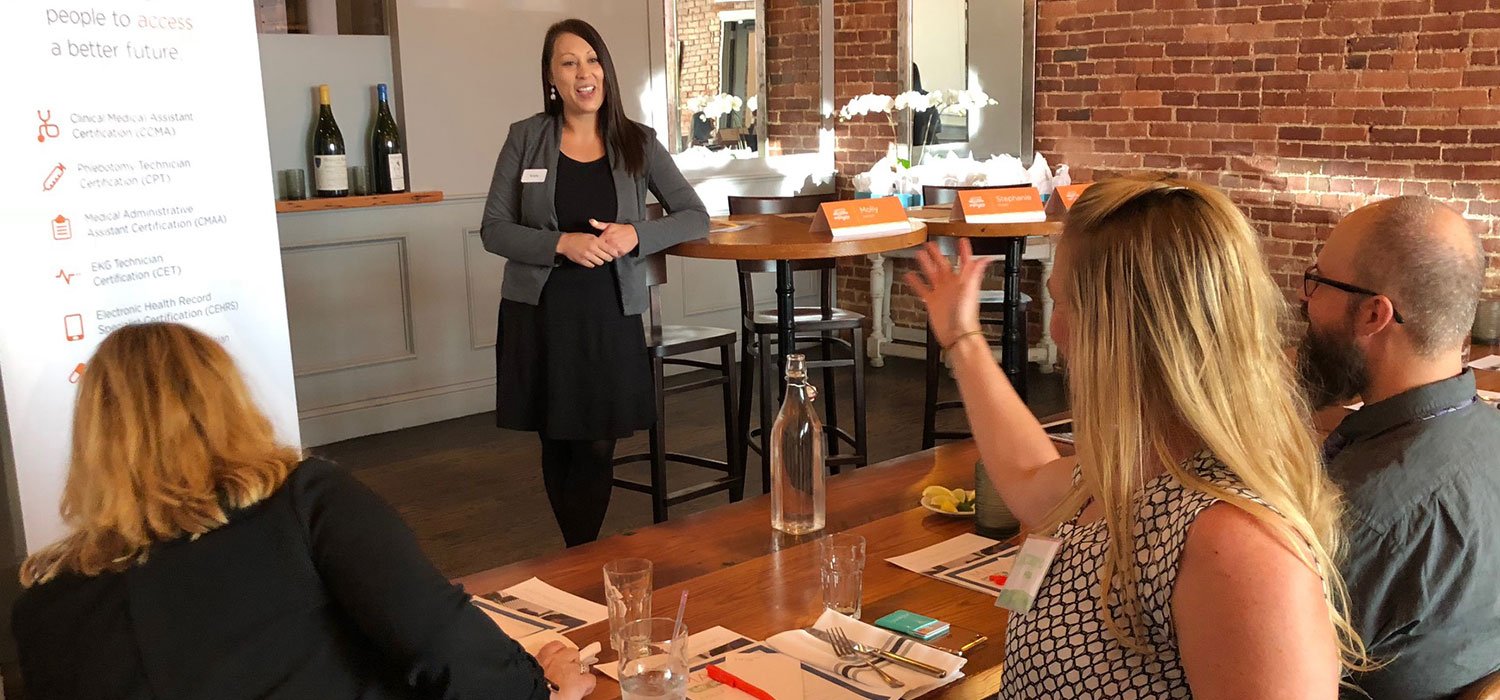NHA has recently been hosting roundtable discussions with allied health educators and large employers of medical assistants across the country. We have discovered opportunities to work more closely, share information and create feedback loops to support allied health educators, students and their future employers.
Not only are these great learning experiences for everyone who attends, but there are some takeaways we want to make sure we pass along. Below are 4 themes we continue to see at these employer-educator summits.
1. Both educators and employers play a role in helping students understand the value of certification — beyond passing the exam
Across all the roles represented — academic deans, vice presidents of human resources, directors of operations, classroom instructors, NHA certification specialists and many more — one thing is clear: we are all passionately committed to empowering students to become professionals who deliver exceptional patient care. A big part of that means making sure excellent certified people are on the frontline of patient care with the right skill sets.
Employers want their new hires to succeed and thrive. They know that the only way to deliver great patient experiences is to empower their workers to do what's right. There are opportunities for medical assistants, and other frontline healthcare workers to advance their career. So encouraging students to take a step back and think about the full arc of their career is a valuable activity. Help them understand the value of certification, how to maintain it, and how to talk about it during their job search.
2. Professionalism skills are important—but they can be tricky to teach
The human resources representatives always confirm that professionalism skills, sometimes called "soft skills" are critical to succeeding in healthcare. This comes as no surprise to educators. Professionalism is critical to success in many areas of a person's life. The call-to-action for us at NHA and for health science educators is to make sure we provide as many resources and tools to help students understand what the expectations are and why.
Let these lessons you’re working hard to teach sink in while using the tools built into NHA online study materials and other articles on professionalism.
3. An externship partner opportunity between a school and an employer may only be a few phone calls away
Educators are always looking to improve or start externship programs at their schools. Afterall, clinicians need experience to get get hired, and employers need to fill these important positions. As an educator, here is what you can do to get the conversation going.
- Find the right person to talk to. This could be someone in HR or it could be someone in clinical operations.
- Be prepared with information on the school's curriculum and amount of students who need to be placed in externships.
- It may be easier at larger health systems than individual practices.
- If there is hesitation, ask what your school could do to facilitate a good partnership.
4. Employers are looking for candidates who understand "why" not just "what"
It's vital that a healthcare employee understands and can successfully accomplish their tasks on the job. However, knowing what to do and why to do it are two different things. Employers want candidates who understand when to flag patient vital signs for escalation — it helps save lives.
Get involved in the discussion
We at NHA continue to hear great feedback about these events. We are excited to be able to host the live discussion in a few more cities this year.
Are you interested in attending an educator-employer summit in your city? Do you think someone in your organization should be at the table networking with the employers in your area? Sign up and we will let you know the next time we will be hosting an event near you.





